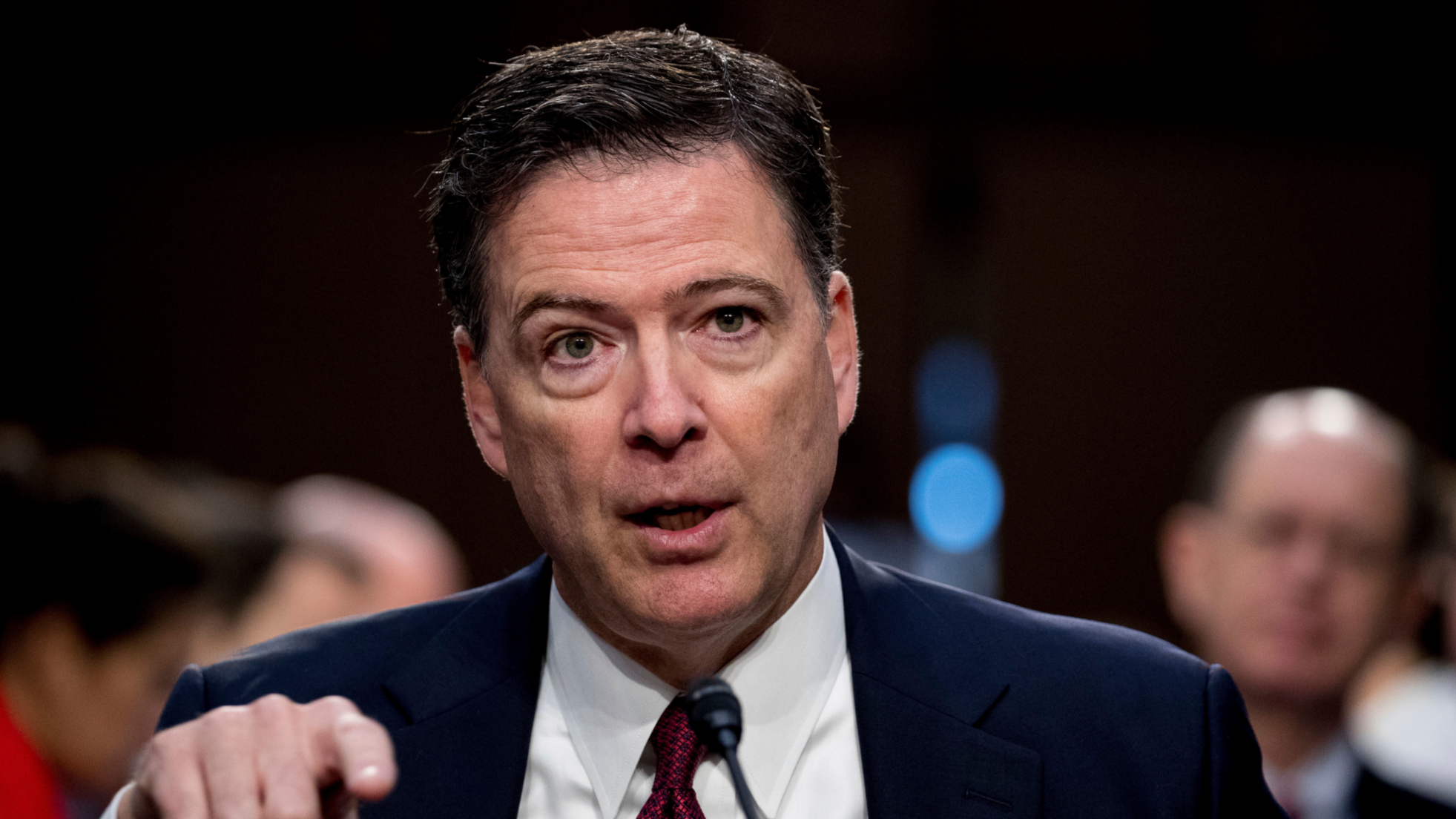
Former FBI Director James Comey moved to dismiss the Justice Department indictment against him, arguing that he was a victim of a vindictive prosecution by President Donald Trump and challenging the appointment of the prosecutor who brought the case.
“The government has singled out Mr Comey for prosecution because of his protected speech and because of President Trump’s personal animus toward Mr Comey,” according to a legal filing that Comey and his lawyers made in federal court in Virginia on Monday.
In another filing, they argue that Trump’s appointment of former White House aide Lindsey Halligan to be interim US attorney for the Eastern District of Virginia was unlawful.
“Because no properly appointed executive branch official sought and obtained the indictment, the indictment is equally a nullity,” according to the second filing. “The United States cannot charge, maintain, and prosecute a case through an official who has no entitlement to exercise governmental authority.”
Comey was charged last month with lying to Congress and obstruction related to testimony he gave in 2020. The move followed an acceleration of Trump’s push for legal action against his perceived political enemies.
The Justice Department declined to comment on Comey’s filings.
Halligan Appointment
The indictment was secured by Halligan just days after her appointment. She was named to the position after Trump demanded that Attorney General Pam Bondi take action against Comey and others.
“We can’t delay any longer, it’s killing our reputation and credibility,” Trump said in a message to Bondi that was put on social media. “JUSTICE MUST BE SERVED, NOW!!!”
Halligan got the job after Erik Siebert, who previously oversaw the office, resigned amid pressure from Trump officials.
Comey argues he was singled out and targeted for prosecution because he has been a vocal critic of Trump for years.
ALSO READ: Former FBI chief Comey charged as Trump ramps up campaign against critics
Trump fired Comey in 2017 during his first term while Comey was leading an investigation into whether anyone associated with Trump’s presidential campaign conspired with Russia to interfere in the 2016 election.
“President Trump ordered the Department of Justice (DOJ) to prosecute Mr Comey because of personal spite and because Mr. Comey has frequently criticized the President for his conduct in office,” according to the legal filing.
The filing says the indictment was obtained just days before the statute of limitations was set to expire for charging Comey with lying to lawmakers in 2020. Comey’s other legal filing makes a technical argument that Halligan’s appointment was unlawful.
Siebert was given an interim, 120-day appointment as US attorney when Trump took office in January, and he was officially approved as US attorney by a federal district court. It was unlawful for Halligan to be installed as another interim US attorney to replace Siebert, according to the legal filing.
“The president and attorney general appointed the president’s personal lawyer as interim US attorney in violation of a clear statutory command so that the interim US attorney could indict an outspoken critic of the president just days before the relevant statute of limitations was set to expire,” according to the filing.
Both filings also argue that the statute of limitations has now expired for Comey to be charged.
Comey’s filing for vindictive prosecution also provides an explanation for a mystery that has hung over the Justice Department’s indictment since it was announced last month.
The indictment accuses Comey of authorizing an unnamed person, identified as only Person 3, to serve as an anonymous source to leak information related to another unnamed person, identified only as Person 1.
Comey’s filing says the Justice Department clarified on Oct 15 that Person 1 was Democrat Hillary Clinton, who Trump ran against in the 2016 election, while Person 3 was Daniel Richman, one of Comey’s long-time associates. The filing describes Richman as a Columbia Law School professor and former FBI special government employee.
Richman and a representative for Clinton didn’t respond to requests for comment. Neither are accused in the indictment of any wrongdoing. The Justice Department declined to comment on the identifications of Person 1 and Person 3.
Comey argues the indictment is further flawed because during the 2020 testimony, he thought he was being asked whether he was telling the truth about another person, Andrew McCabe, who served as his deputy when he was FBI director.
“Mr. Comey plainly did not knowingly or willfully lie to Congress about his interactions with Mr. Richman or act with the corrupt intent to mislead Congress about those interactions,” according to Comey’s filing. “In other words, the indictment presents an inaccurate description of the testimony at the heart of this case.”


